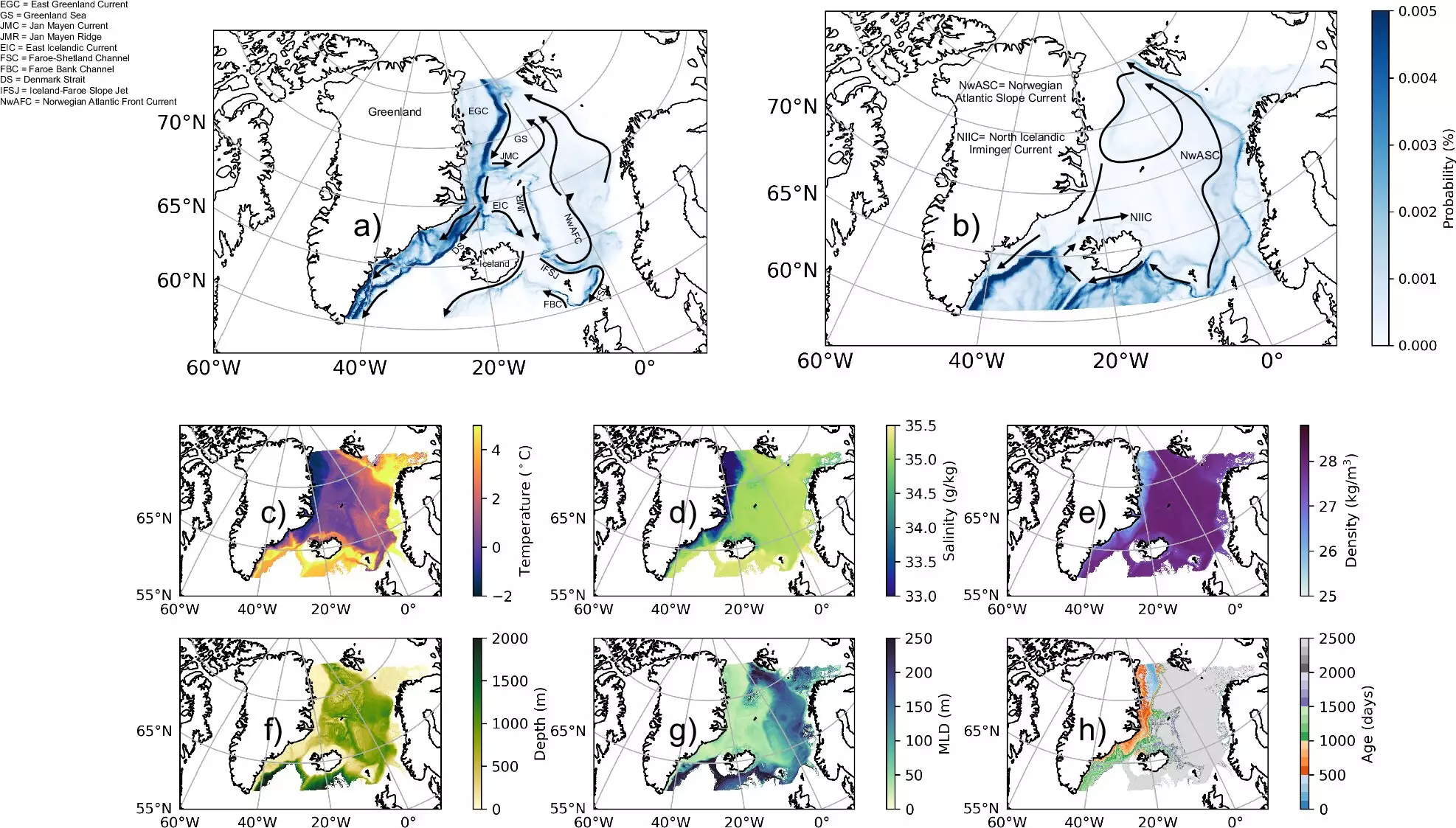Recent research from the University of Southampton, the Indian Institute of Technology Bhubaneswar, the National Oceanography Center, and Stockholm University has uncovered the significant importance of the mixing of Atlantic and Arctic waters in sustaining the Atlantic Meridional Overturning Circulation (AMOC). This circulation system acts as a vital component in regulating Earth’s climate by transporting warm water from the tropics northward and cold water southward, distributing heat around the planet.
The study, published in Nature Communications, revealed that the lower limb of the AMOC, which consists of deep, cold, dense water flowing southward in the Atlantic Ocean, is made up of 72 percent Atlantic waters and 28 percent Arctic waters. As warm water from the tropics reaches the cooler regions of the North Atlantic, it loses heat to the atmosphere, becomes denser, and sinks to great depths. The mixing of this dense water with colder, fresher Arctic waters in regions like the Denmark Strait makes the waters even denser before they flow southward, contributing to the strength of the AMOC.
The researchers estimated that the mixing of Atlantic and Arctic waters accounts for 33% of the transformation of warm, salty water into colder, fresher, and denser water, with 67% attributed to interactions between the ocean and the atmosphere. These findings challenge previous assumptions that primarily focused on heat loss in specific areas without considering the critical role of Atlantic-Arctic water mixing. Climate models predict that the AMOC could weaken as the planet warms, potentially leading to major consequences for global climate patterns.
Potential Climate Impacts
A weaker, shallower AMOC circulation, similar to what occurred during the last Ice Age, could result in colder temperatures in Northern Europe and sea-level rises along the eastern coast of the United States. The new insights into the role of the mixing of Atlantic and Arctic waters provide a better understanding of these processes, emphasizing the importance of accurately representing water mixing processes in climate models to predict future climate scenarios.
The study highlights the complex interplay between climate and global ocean circulation processes, emphasizing the need to consider the crucial role of Atlantic and Arctic waters in sustaining the AMOC and regulating Earth’s climate. Understanding these processes is essential for addressing the potential impacts of a weakened AMOC on global climate patterns and accelerating climate change.


Leave a Reply